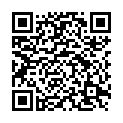|
|
|
| Module code: MBG21-17 |
|
|
6S (6 hours per week) |
|
7 |
| Semester: 5 |
| Mandatory course: yes |
Language of instruction:
German |
Assessment:
Exam achievement
[updated 15.11.2021]
|
MBG21-17 (P311-0187) Management and Professional Pedagogy in Health Care, Bachelor, ASPO 01.10.2021
, semester 5, mandatory course
|
90 class hours (= 67.5 clock hours) over a 15-week period.
The total student study time is 210 hours (equivalent to 7 ECTS credits).
There are therefore 142.5 hours available for class preparation and follow-up work and exam preparation.
|
Recommended prerequisites (modules):
MBG21-1 Academic Methodologies and Study Skills I
MBG21-11 Healthcare Management II
MBG21-13 Health Care Management III
MBG21-5 Healthcare Management I
[updated 12.10.2023]
|
Recommended as prerequisite for:
MBG21.M.41 Management in Hospitals
MBG21.M.42 Management of Inpatient and Outpatient Facilities
MBG21.M.43 Change Management
MBG21.M.44 Risk Management
[updated 30.05.2024]
|
Module coordinator:
Prof. PhD Petra Riemer-Hommel |
Lecturer:
Prof. PhD Petra Riemer-Hommel
[updated 12.10.2023]
|
Learning outcomes:
Quality Management
After successfully completing this module, students will have the following skills and competencies:
Students will be able to:
Knowledge and Comprehension:
Students will be able to describe the concept of quality in standards, regulations and procedures.
They will be able to list the advantages and disadvantages of different quality management systems (in terms of objectives, implementation, possibilities and limitations) used in health care facilities.
They will be familiar with selected quality management tools and be able to evaluate their advantages and disadvantages.
They will be able to critically examine the concept of quality and understand the importance of QM systems for increasing or ensuring the quality of care.
The Use, Application, and Generation of Knowledge:
Students will be able to apply the methods, techniques and instruments of quality management adequately and in a problem-solving manner.
Communication and Cooperation:
Students will be able to take into account different perspectives on quality management in interdisciplinary and interprofessional teams and work groups.
Scientific Self-Concept/Professionalism:
Students will have developed an understanding of their role and act as a role model when implementing quality initiatives.
Personnel Management:
After successfully completing this module, students will have the following skills and competencies:
.
Knowledge and Comprehension:
Students will be able to distinguish the central fields of action in personnel work, such as personnel planning, personnel deployment, personnel marketing and personnel development.
They will be able to analyze the importance of employee motivation for effective personnel management.
The Use, Application, and Generation of Knowledge:
Students will be able to apply theoretical principles to practical examples from the health care sector.
Communication and Cooperation:
Students will be able to argue and justify decisions vis-à-vis professional colleagues and in an interdisciplinary team.
Scientific Self-Concept/Professionalism:
Students will be able to reflect upon their personal understanding/model of leadership.
[updated 15.11.2021]
|
Module content:
Quality Management
Terminology, basic concepts and principles of quality management
Legal foundations of quality management
Overview of relevant quality management systems, certification and accreditation (e.g. DIN EN ISO/IEC, KTQ, EFQM)
Analysis, goals, benefits and limits of quality management
Selected quality management tools (QM tools)
Quality management in interdisciplinary and interprofessional teams
Personnel Management:
1. Goals and tasks of operational personnel work
2. Human resources planning
3. Basic features of personnel marketing
4. Recruiting
5. Corporate remuneration policy
6. Personnel development/layoffs
7. Organizational and motivational models for human resources
[updated 15.11.2021]
|
Teaching methods/Media:
Blended learning
[updated 15.11.2021]
|
Recommended or required reading:
Recommended literature will be announced at the beginning of the course.
[updated 15.11.2021]
|

